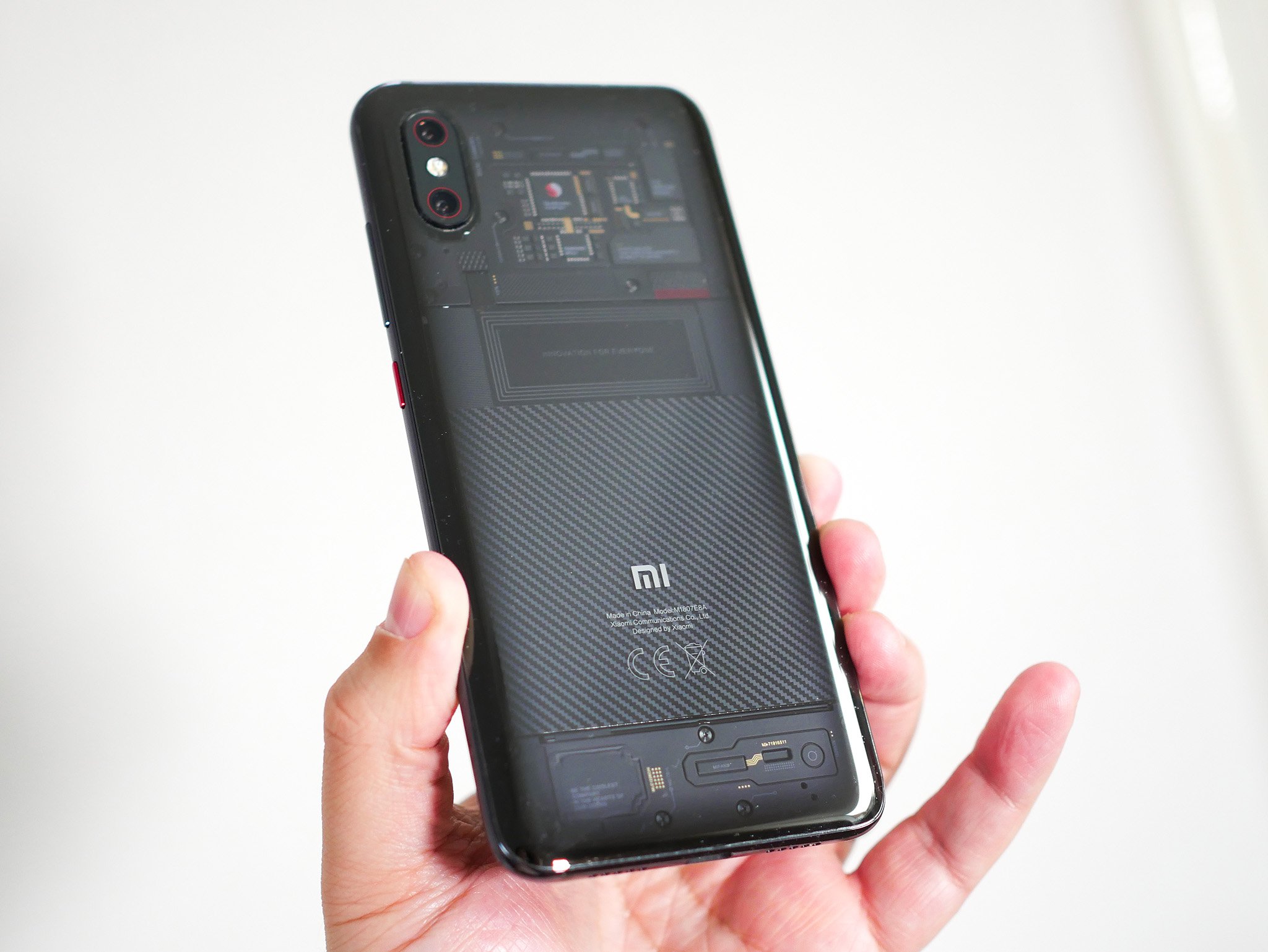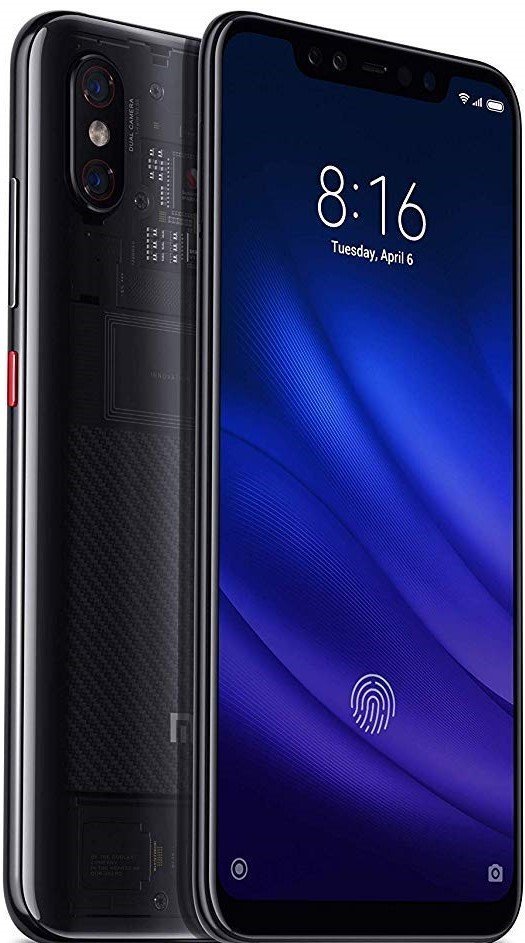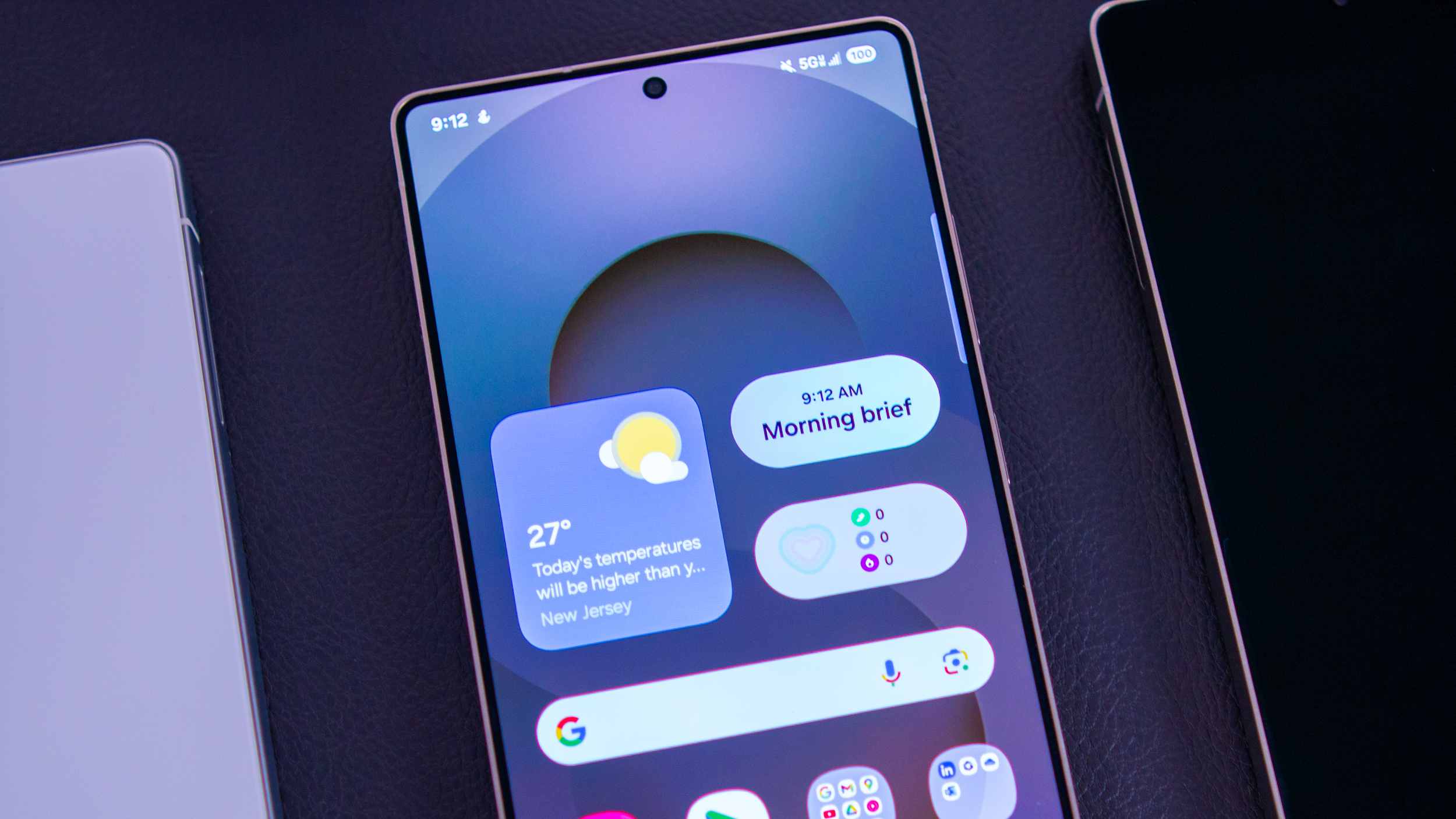Xiaomi has elevated itself to one of the world's leading smartphone manufacturers without any real presence in the west. The Chinese company has still been able to build a passionate fanbase throughout regions such as Europe, even without official availability in many locations.
Xiaomi has recently made its official arrival into the UK market with a range of products, including smartphones, electric scooters, toothbrushes, wearables, and even a kettle.
Pros:
- Gorgeous design
- Incredible performance
- Good cameras
- Excellent screen
- Super-fast face unlock
Cons:
- Sizable notch
- No wireless charging
- Poor speaker
- Fingerprint scanner can be hit and miss
About this review
I (Richard Devine) am writing this review after three weeks of use of the official UK version of the Xiaomi Mi 8 Pro on the Vodafone network. Initially, the phone shipped with MIUI 9 but has since updated to MIUI 10 which brought a number of new features. The phone has run Android 8.1.0 throughout and was updated to the October security patch with the most recent OTA.
Xiaomi Mi 8 Pro hardware and design
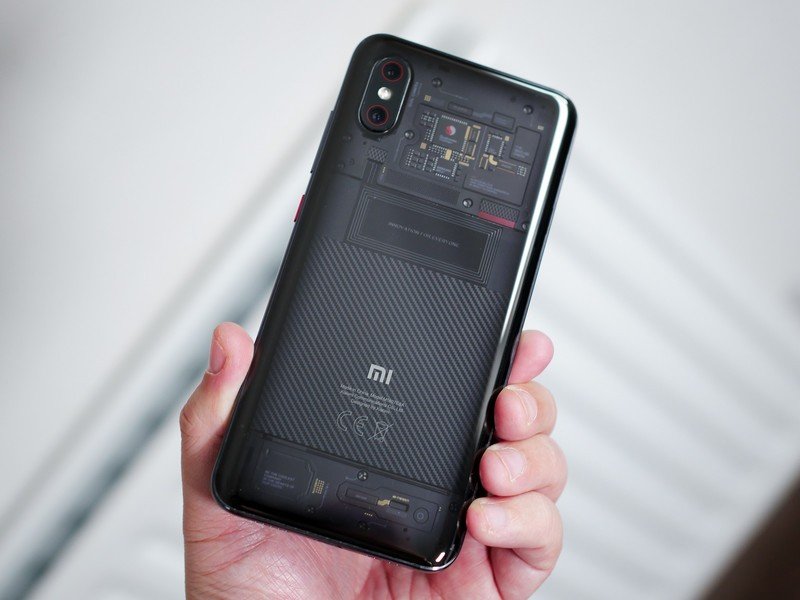
Is there another phone out there right now that looks like the Xiaomi Mi 8 Pro? Well, that depends which side of the phone you're looking at. Because on the front it looks essentially the same as a heap of other 2018 smartphones. Skinny bezels on the sides and bottom, notch at the top, display filling the rest. I'll touch on the display later, but nothing about the front of the Mi 8 Pro is what catches your eye.
It's what's around the back that stands out. And boy, is it a looker.
Get the latest news from Android Central, your trusted companion in the world of Android
The Mi 8 Pro was originally launched as the Mi 8 Explorer Edition in Asia, and the transparent back is what really sets it off. Much has been made by tech nerds about the fake circuitry on display, but here's a quick newsflash. Who really cares? It looks awesome. The real circuit boards wouldn't look this nice, I mean, have you ever seen what's really inside a phone?
The back of your phone doesn't look this good.
The rest of the rear, basically the battery, is genuine. You have no wireless charging, because an ugly pad would spoil the aesthetic, but the battery is real, the circuitry is not and there's a bunch of 'inspirational' messages throughout.
Xiaomi calls it Transparent Titanium, and instead of being a completely clear rear panel, it has a hazy titanium color applied that adds to the appeal. No-one can deny that this phone oozes a unique sense of style. The sides of the phone look like stainless steel, though they're not of course, and the red power button matching with the red camera accents adds just enough color to make the whole thing pop.
There haven't been many phones in recent times where I'm purposely putting it face down on my desk so I can keep looking at the back.
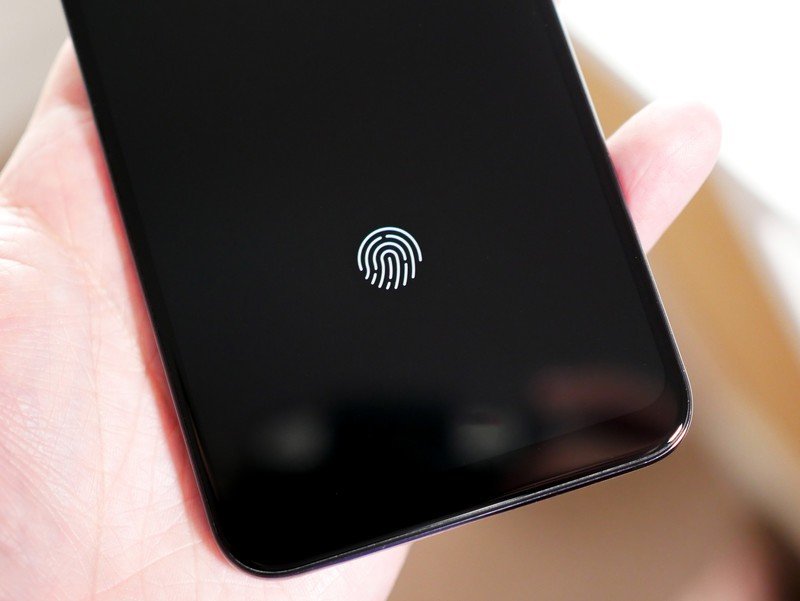
That's not to say what's round the front isn't excellent, though.
The display is a 6.21-inch 2248 x 1080 AMOLED panel that supports the DCI-P3 wide color gamut. By default, the phone is set to a fairly neutral color profile, but if you turn it up to be a little more contrasty, it really sings. The blacks are deep, the colors are vibrant, and with a maximum brightness of 600 nits, you've got no issues seeing it outdoors.
The display also supports the now standard reading mode with scheduled times to turn up the warmness and give your eyes a rest at night, and as it's an AMOLED you also get a proper always-on display, too.
Face Unlock is far superior to the in-display fingeprint scanner.
Part of the clean aesthetic of this phone is that there's no fingerprint sensor on the front or back. The Mi 8 Pro is one of the early crop of smartphones to have an in-display scanner, and the positioning of it is absolutely perfect. It's a little higher up than you'd find on the OnePlus 6, and whichever hand you hold the phone in it just seems to be the ideal height to drop your thumb onto.
The bad news is that it's just not as good as a regular fingerprint scanner. That's not Xiaomi's fault specifically, but besides feeling like you're living in the future and showing off to your mates in the pub, the in-display fingerprint scanner is more frustrating than delightful. It's pressure based, so the first thing to do is learn how hard to press, but while it's fairly accurate, it's just not accurate enough. There are too many failed authentications, which gets annoying when every phone with an external scanner performs so much better.
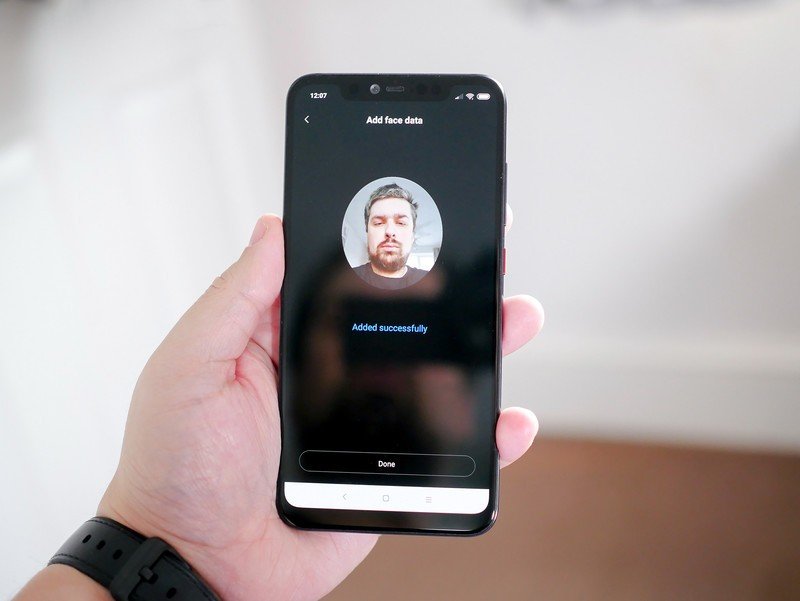
The flip side is that you don't have to bother with the fingerprint scanner to have some quick access biometric security. The MIUI 10 update unlocked Face Unlock using the phone's front IR camera, and it is utterly brilliant. So long as you're looking at the phone you never see the lock screen, you're just instantly unlocked and on your home screen. And because it uses IR, the same performance applies even in a completely dark room. You can't use it to log into apps, so I've been using it alongside the fingerprint scanner, but I never use the latter to unlock the phone anymore.
It's also worth pointing out bad the speaker on this phone is. I have two other Xiaomi phones around right now that cost significantly less and have better speakers by a country mile. It's abysmal. You can't watch a YouTube video without turning it almost up to full if you actually want to hear it, and its only useful purpose in life is to wake you up in a morning and tell you when someone is trying to call you.
Performance and battery life
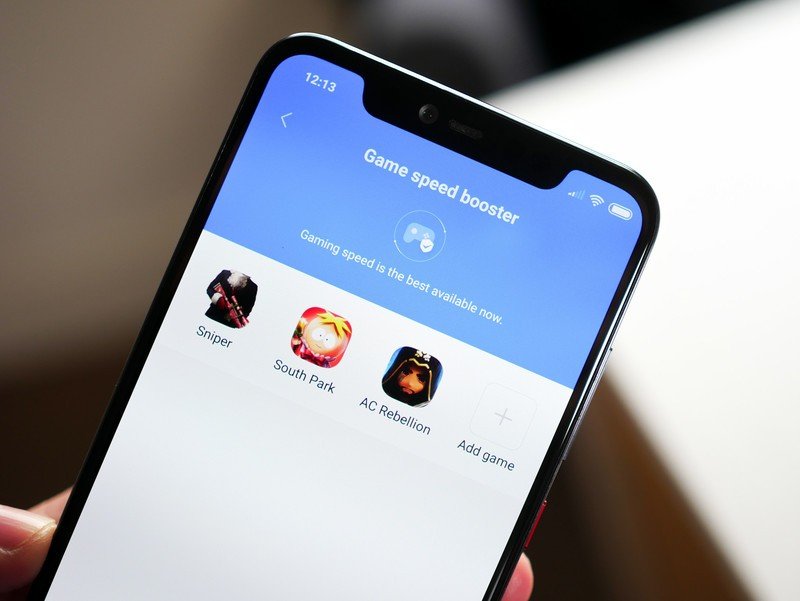
While the processor on the rear is a dud, the one inside the phone is anything but. The Mi 8 Pro uses Qualcomm's current range-topper, the Snapdragon 845, paired with 8GB of RAM and 128GB of internal storage. That alone puts it at the very top of the hierarchy, with internal specs to rival other recent launches like the Razer Phone 2 and ASUS ROG Phone, both of which are geared towards performance-hungry gamers.
| Specs | POCO F1 |
|---|---|
| Screen | 6.21-inch FHD+ (2248x1080) AMOLED DCI-P3 color gamut |
| Chipset | Snapdragon 845 |
| RAM | 8GB |
| Storage | 128GB |
| Software | Android 8.1 Oreo, MIUI 10 |
| Rear Camera 1 | 12MP, ƒ/1.8, OIS |
| Rear Camera 2 | 12MP, ƒ/2.4 |
| Front Camera | 20MP |
| Security | In-display fingerprint, face unlock |
| Battery | 3000mAh |
| Connectivity | Wi-Fi 802.11 ac, Bluetooth 5.0 |
| Weight | 177g |
| Price | £499 |
Needless to say, there are exactly zero concerns about performance on the Mi 8 Pro. It gobbles up everything you throw at it, never slows down and chews through the likes of PUBG Mobile with ease on the highest settings.
There are a couple of things that may put some off, however. The first is the lack of a microSD card slot to expand that 128GB of storage. Personally, that's about double what I really want from a phone, but there are folks who simply cannot use a phone without expandable memory. So the Mi 8 Pro is not for those people.
The other is battery life. In removing the rear fingerprint scanner and having a gorgeous clear back, the Mi 8 Pro actually has a smaller battery at 3000mAh than the regular Mi 8. That's not normally something you'd expect from a "Pro" model of anything, and while Xiaomi had its reasons, I'm not sure the battery is something to shrink.
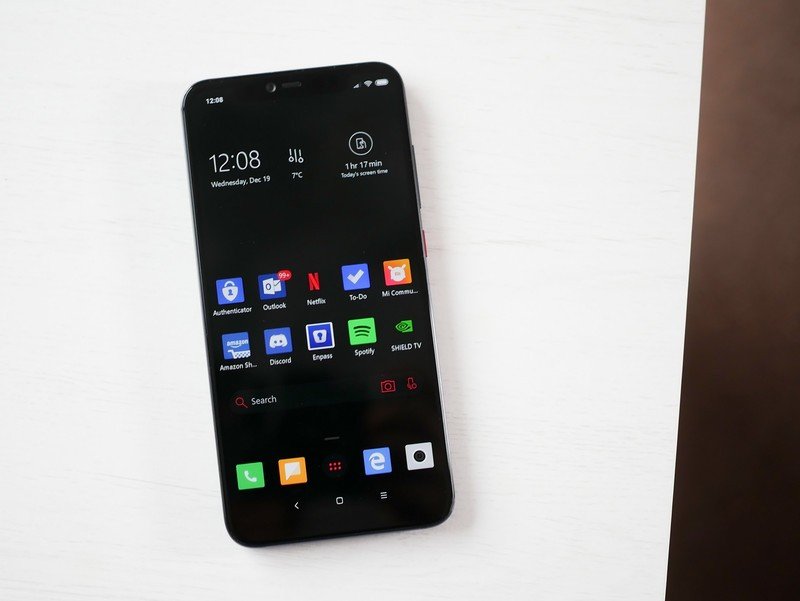
The good news is it's still plenty to get through the day, and apart from times I've been using it as a hotspot while traveling or using it with my DJI Spark, making it to the time I turn in for the night hasn't ever been an issue. But it's certainly no multi-day phone in anyone's world.
The Mi 8 Pro does at least have Quick Charge 4+ behind its USB-C port (which is also where you'll be hooking in your headphones) so if you do need to top up, it can be done very quickly. I've been leaving it off the charger overnight most days, plugging it in while having breakfast and getting the kids dressed, and by the time I'm done it's fully charged and ready for the day.
A bigger battery would still have been better, though.
Xiaomi Mi 8 Pro software
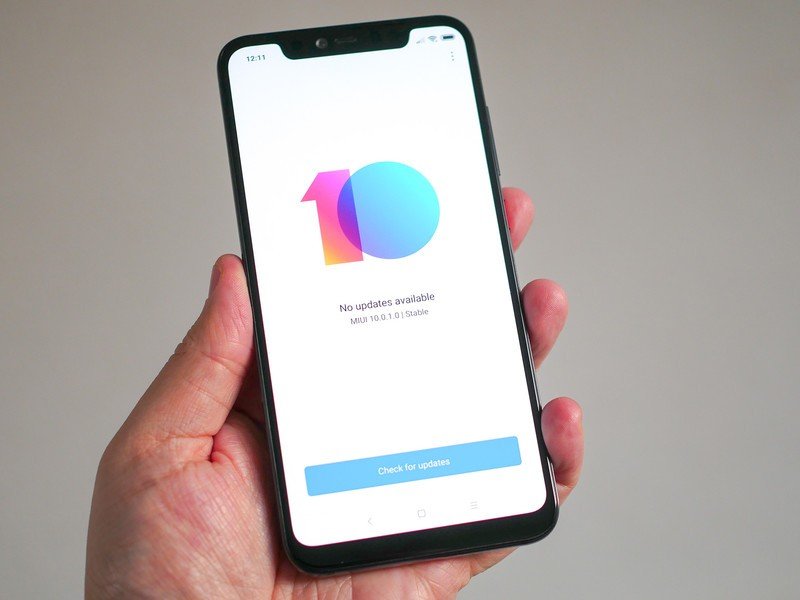
Fans of stock Android look away now because MIUI is as far away from that as you'll find anywhere. MIUI isn't just a skin, it's a complete reworking of Android from top to bottom. While in the West it's fully Google-equipped, in Xiaomi's native China, MIUI is built to operate without El Goog, so absolutely everything is custom.
It's also one of the best-customized versions of Android you'll find. Sure, the appearance will split opinions — it's done that forever. But aside from its looks, the performance of MIUI has, on the whole, been excellent. It's incredibly well optimized and whether you're running a top of the line Mi 8 Pro or the entry-level Redmi 6, MIUI will provide a consistent and impressive experience.
On the Mi 8 Pro, out of the box was MIUI 9 built on Android 8.1 Oreo, but during the course of this review, the MIUI 10 update arrived which changed a lot of things for the better. It's still based upon Android 8.1, and aside from a more recent security patch, there are no platform changes at all.
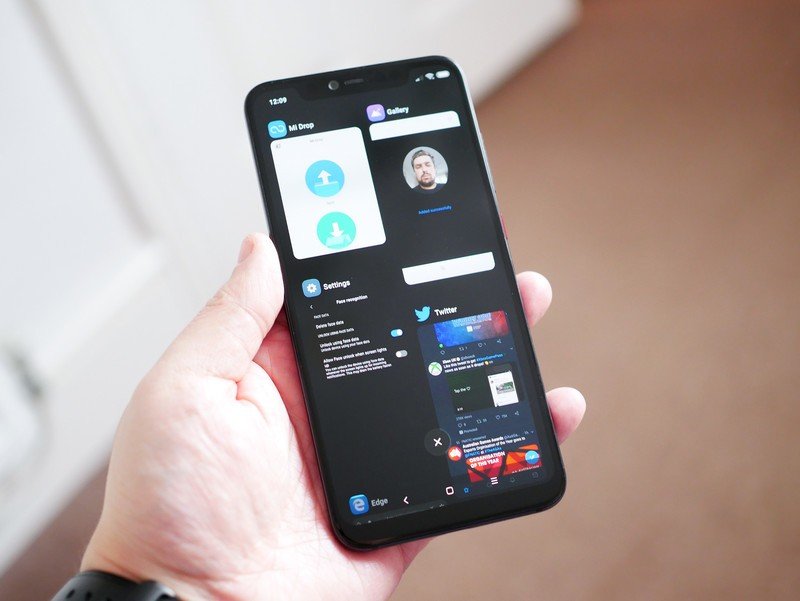
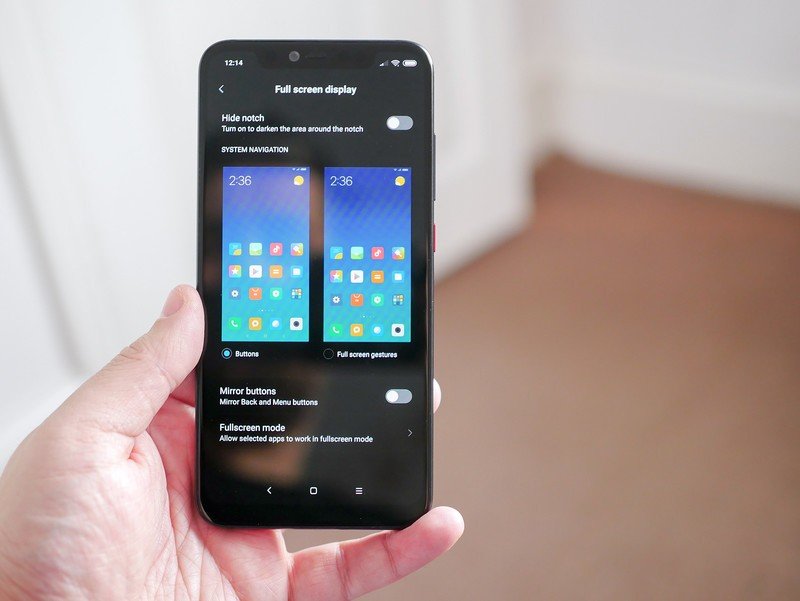
The way Xiaomi handles MIUI is refreshing because, while there will be an update to Android 9.0 Pie coming (the regular Mi 8 is already starting to get it), it will change very little out front. Xiaomi adds a ton of great features, and the version of Android underneath isn't at all responsible for any UI changes that are user-facing.
The big feature that MIUI 10 unlocked for the Mi 8 Pro is the Face Unlock already mentioned, but the UI also had a fairly hefty overhaul and it also introduced Xiaomi's take on gesture control. These allow you to remove the onscreen buttons and navigate with a series of swipes and I can quite happily say I think they're executed much better than Google's efforts in Android 9.0.
Xiaomi has its own complete suite of apps, some of which you'll ignore, but some of which are very useful. The file manager and MiDrop applications work together and are pretty good, with MiDrop allowing you to send files quickly between devices. It even works on non-Xiaomi devices so long as you're able to install either it or the file manager app from the Play Store. I've used it with a Fire HD 10 tablet to great effect.
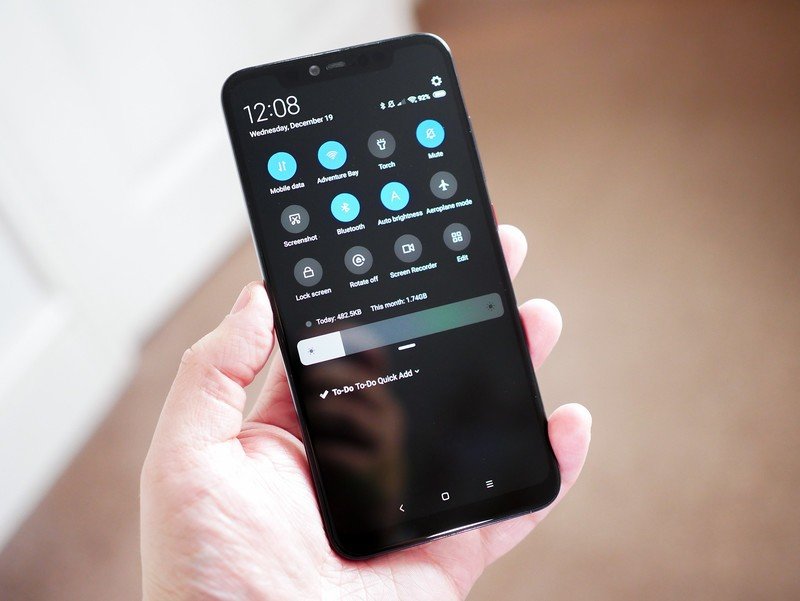
One app which is pre-loaded but doesn't work in the UK is the Themes store. The easy workaround is to change your region to Hong Kong and then it works just fine. The standard theme is very white, but I had no trouble doing the region change, applying a scorching hot black theme then changing region back to the UK and everything was all fine.
The stock MIUI launcher continues to be an app-drawer free affair, but nowadays it does have the App Vault, a panel to the left of the home screen that you can pin apps and shortcuts to, but if you want an app drawer you'll be using something else. The Poco Launcher from Xiaomi is in the Play Store now, as found on the Poco F1 and that does have a drawer, but it doesn't come pre-loaded on this version of MIUI.
Xiaomi Mi 8 Pro camera
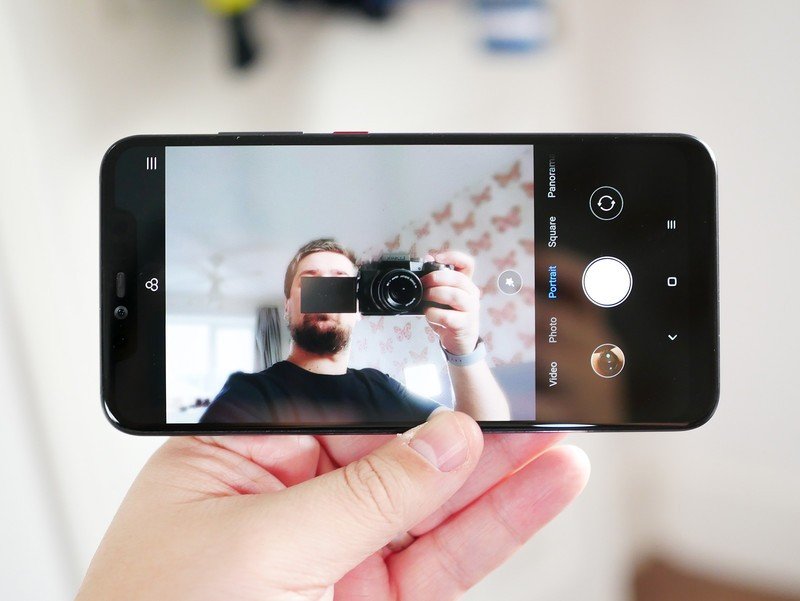
The camera doesn't get an upgrade over the regular Mi 8, so you get the same 12MP dual-camera setup with a wide-angle lens with 4-axis OIS at ƒ/1.8 and a 12MP telephoto and portrait lens at ƒ/2.4.
It also has an "AI mode" as many other leading smartphones are starting to add, essentially smart scene detection with the aim to make your photos pop without having to edit them yourself. It does the job quite well without being too aggressive.
Xiaomi's camera app isn't overly complex, either, with full manual controls included. Slightly annoying is that you can't just choose the size of your images in megapixels, just the frame ration and high, medium or low settings. The dual-camera watermark is also on by default, too, so you'll probably want to turn that off. Video recording can be done at 4K resolution at 30FPS and up to 240FPS for slow-motion at 1080p.
Image quality is generally very good, though it does fall down a little in lower light. I think that's partly down to the AI mode trying to brighten everything up which just leaves you with noise, but if you've got the patience you can certainly work around that. It's no Pixel 3, though.












Dynamic range and detail is good and having OIS certainly helps keep things crisp. Portrait mode has excellent edge detection, but when shooting close-up images you can get a pretty solid depth of field without it, too.
The front-facing camera is 20MP and has most of the same software available, including HDR and portrait mode. Edge detection on portrait mode is also excellent on the front-facing camera so your selfies will always look their best.
Should you buy the Xiaomi Mi 8 Pro? Yes!
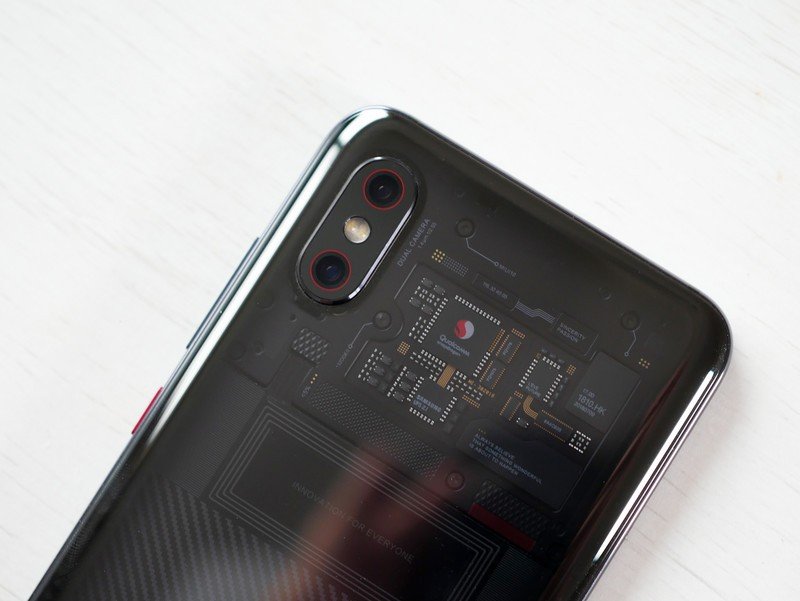
Terms like "flagship killer" have been used in the past by various brands, but in the case of Xiaomi, that's basically how the company built its smartphone business. The name might be new on UK shelves, but the brand is still known the world over for providing high-end hardware at more affordable prices.
The Mi 8 Pro is the top dog of Xiaomi's launch lineup and it's worth every pound of its £499 price tag. It isn't perfect, but in a sea of smartphones, no other looks like this, and it's definitely got the performance to back it up. I wish the battery was bigger and the speaker was, well, as good as Xiaomi's cheaper phones, but the overall experience is excellent.
4 out of 5
There's innovation, too, like using an in-display fingerprint scanner, all the while feeling like a quality product that the established brands would charge hundreds more for.
The biggest competition to the Mi 8 Pro in the UK comes from the similarly priced OnePlus 6T and Xiaomi's own Poco F1, which is quite a bit cheaper but with similar internal hardware. The Mi 8 Pro is exquisite, and if you're drawn to it, buy it and be very happy indeed.
